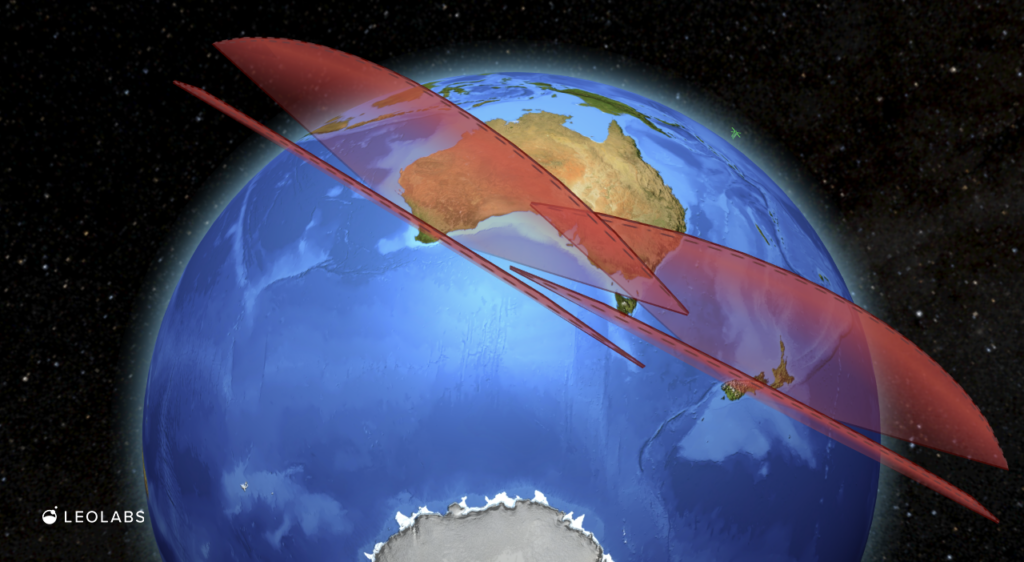
LeoLab’s new radar facility in Western Australia widens coverage across the Souther Hemisphere provided by its earlier site in New Zealand. (LeoLabs)
WASHINGTON — LeoLabs‘ latest radar facility for monitoring the heavens has opened for business in Western Australia, joining with its New Zealand sister site to improve coverage of the fraught Indo-Pacific region, CEO Dan Ceperley told Breaking Defense.
In particular, the new radar increases the speed at which customers — which include the US Defense Department and the Japanese Air Force — can take another look at a suspicious satellite or dangerous piece of debris, he explained in an interview just prior to Monday night’s ribbon cutting in Circe, Western Australia.
“More geographic coverage helps revisit rates, so we see satellites more frequently. Which is quite critical,” he said.
DoD and its regional allies have been ever more concerned by China’s burgeoning activities in space, including satellites with capabilities that might be put toward orbiting counterspace weapons.
“The other thing with newly launched satellites is they go in all sorts of different trajectories, so having another radar in another location will pick them up sooner,” he added. “Then there’s capacity, with more and more stuff [on orbit] you just you want more and more available radar time to go and check on these objects.”
The Australian site brings the company’s globe-spanning network of ground-based radars up to six facilities to detect and track space objects in LEO. The radar network today can keep tabs on space objects down to 10 centimeters in diameter, but LeoLabs has big plans for improving its capabilities for finding and tracking even smaller debris in the future.
Two radars are housed at each site in Alaska, Texas, Costa Rica, the Azores, New Zealand and now Australia.
Ceperley said the new radars have come online just in time to “dovetail” with the Commerce Department’s Jan. 26 request to industry for input on its draft plan, first reported by Breaking Defense, for providing “basic” space situational awareness data and analysis to commercial and foreign operators in lieu of Space Command.
“The timing couldn’t be better,” he said with a laugh.
Last September, LeoLabs received a first-of-a-kind contract from the Commerce Department to provide data for a prototype of that future service.
“The service is needed, and I think Department of Commerce is really well positioned because they’re both a regulator and a promoter of industry. So, it’s a good it’s a good balance, a good set of tensions to have, because they’ll be incentivized to get space safety and sustainability right, but also keep the industry growing, keep the industry humming along,” Ceperley said.






















